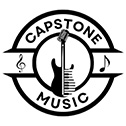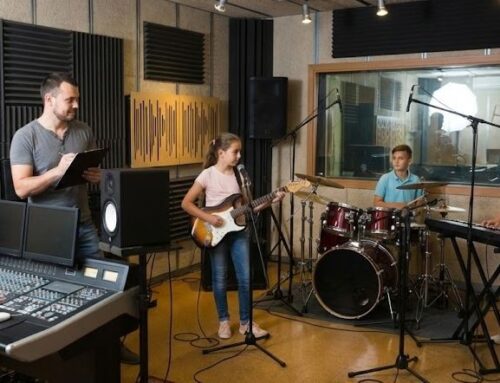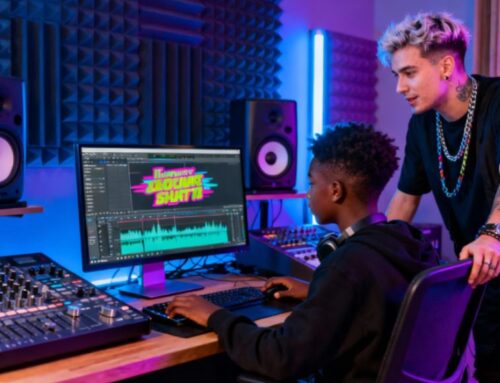Attention Deficit Hyperactivity Disorder (ADHD) and behavioural disorders are common neurodevelopmental conditions that affect children and adults alike to the tune of 4-6% of adults and 5-7% of children. These conditions often present challenges in various aspects of life, including academic performance, social interactions, and emotional well-being.
While traditional treatments like medication and therapy are widely used to manage symptoms, there is growing interest in exploring alternative approaches. Music lessons is among these alternatives being explored as a potential complementary therapy. Here we explore the question of whether music lessons can indeed help individuals with ADHD and behavioural disorders.
The Power of Music
At Capstone Music in Burlington, our focus is instilling the life-long love of music in our students – children and adults alike. Whether you’re looking to train as a future vocal performer, pianist or to escape screen time and the “noise” of everyday life, music can be a calming, therapeutic escape. Join our family and book your lessons today!
Music has long been celebrated for its therapeutic potential. It can evoke emotions, promote relaxation, and improve cognitive abilities. Research has shown that music engages multiple areas of the brain, including those responsible for memory, attention, and executive functions. Mental health benefits are also cited. These findings have sparked curiosity about whether structured music education can offer benefits to individuals with ADHD and behavioural disorders.
Music Lessons and ADHD
Several studies have investigated the effects of music lessons on individuals with ADHD, and the results are promising. Here are some ways in which music lessons can potentially benefit those with ADHD:
- Improved Concentration – Learning to play a musical instrument often requires sustained attention and focus. Children and adults with ADHD may find it challenging to concentrate, but music lessons can provide structured practice that helps enhance attention span.
- Enhanced Executive Function – Executive functions such as planning, organization, and impulse control are often impaired in individuals with ADHD. Learning to read music, follow complex instructions, and coordinate hand-eye movements during music lessons can help strengthen these executive skills.
- Emotional Regulation – Music can have a powerful impact on emotions. Playing an instrument or engaging in singing can serve as an emotional outlet and help individuals with ADHD manage their emotions more effectively.
- Social Interaction – Group music lessons can facilitate social interactions and improve interpersonal skills, which can be particularly beneficial for individuals with ADHD, who may struggle with social relationships.
Music Lessons and Behavioural Disorders
While most research has focused on ADHD, there is also evidence to suggest that music lessons can be valuable for individuals with other behavioural disorders, such as autism spectrum disorder (ASD) and oppositional defiant disorder (ODD). Some potential benefits include:
- Communication Skills – Music can serve as a non-verbal form of communication, which may be especially helpful for individuals with ASD who have difficulty with verbal communication. Learning to play an instrument or sing in a choir can provide an alternative means of expression.
- Emotional Expression – Many individuals with behavioural disorders struggle with regulating their emotions. Music offers a safe and expressive outlet for processing emotions and can help reduce challenging behaviours.
- Improved Self-esteem – Mastering a musical instrument or participating in musical performances can boost self-esteem and confidence, which can have a positive impact on behaviour and overall well-being.
- Structured Routine – Music lessons typically follow a structured routine, which can be reassuring for individuals with behavioural disorders who thrive on predictability and consistency.
While more research is needed to fully understand the extent of the benefits music lessons can offer individuals with ADHD and behavioural disorders, there is a growing body of evidence suggesting that music education can be a valuable complementary therapy. Music has the potential to improve concentration, enhance executive functions, regulate emotions, and promote social interaction, all of which are areas of challenge for those with these conditions.
Importantly, music lessons should not be considered a standalone treatment for ADHD or behavioural disorders. Rather, they can be integrated into a comprehensive treatment plan that may include medication, therapy, and behavioural interventions. Individual responses to music therapy can vary, so it’s essential to work with healthcare professionals and music educators to tailor interventions to each person’s unique needs.
Music Lessons as a Supportive Tool for ADHD and Behavioural Disorders
Music lessons hold promise as a supportive tool in managing ADHD and behavioural disorders. While not a cure, music can provide individuals with a creative and enjoyable way to develop essential skills and cope with the challenges they face. As research in this field continues to grow, music education may become an increasingly valuable component of holistic treatment strategies for these conditions.






